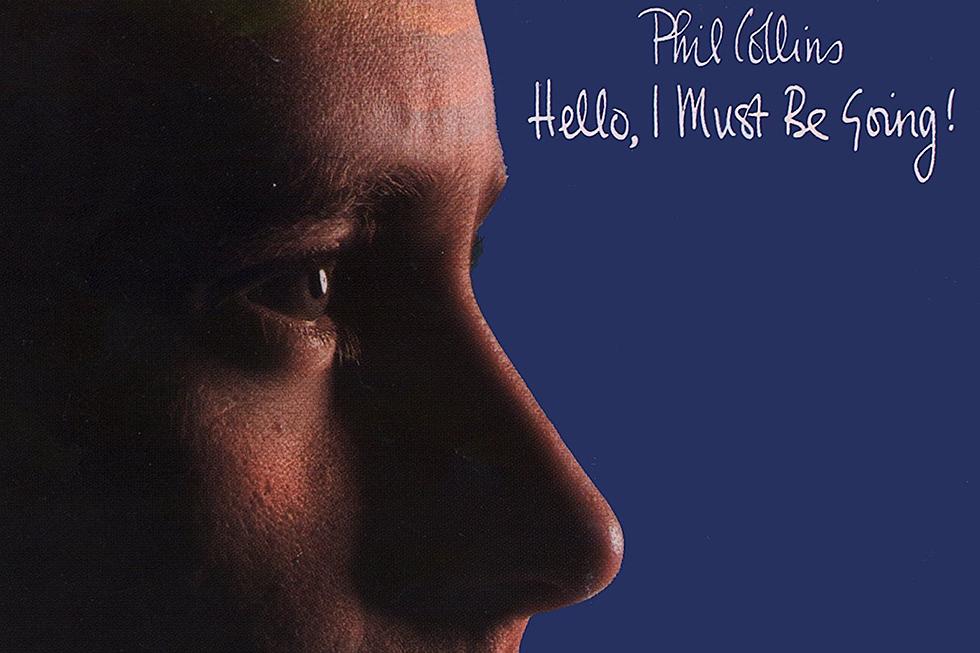
Why Phil Collins Struggled to Focus on ‘Hello, I Must Be Going’
An album of dizzying extremes, Phil Collins’ Hello, I Must be Going! is the sound of a man who hasn't finished wrestling with his failed marriage. He hadn't gotten a handle on his own solo ambitions either.
"If my first album [Face Value] was 'I'm divorced and I'm miserable,'" Collins told Rolling Stone in 2016, "my next one was 'I'm going to kick this fucker to bits.'"
Of course, Collins’ more consistent solo debut from two years earlier had likewise dealt with angry recriminations over his divorce. Hello, I Must Be Going! arrived on Nov. 5, 1982 with still more hard feelings for the Genesis frontman — even as he began to experiment with the polished groove-pop that would send the subsequent No Jacket Required to the stratosphere.
“The last thing I want to do is make a second divorce album,” Collins wrote in his 2016 autobiography Not Dead Yet, "but being someone who writes from the heart and not the head, I have no option."
The results, perhaps unsurprisingly, are confusing: Is Phil Collins the spittle-spewing ex-husband, raging against the emotions he once had, as on the Top 40 hit “I Don’t Care Anymore”? Or the broken romantic who desperately hopes for reconciliation, heard here amid the manic delirium of “Do You Know, Do You Care?” Is he the quiet and thoughtful lover of “Why Can’t It Wait ‘Til Morning’? Or is he the creeper stalker dude from “Thru These Walls”?
The answer? He's kinda all that. The album, like Collins, was built on a foundation of deep complexity. "By this point, I was getting letters from lawyers asking for unbelievable things," Collins told Rolling Stone. "I never sat down and wrote, 'You're a bitch.' I went to school with my wife. I have a huge amount of affection for her."
Listen to Phil Collins Perform 'I Don't Care Anymore'
In a way, though, Hello, I Must Be Going! holds inside of it the entirety of Collins’ musical DNA strand, both as a solo artist and a member of Genesis.
For instance, “I Cannot Believe It’s True” – a low-charting single for Collins at No. 79 – is a rewrite of 1981’s “I Missed Again,” right down to the undulating rhythms and swaying brass. “Like China” finds Collins using a cockney accent last heard on late-'70s Genesis projects. “It Don’t Matter to Me” employs the memorable hooks and knee-slapping brass parts — courtesy of Earth Wind and Fire’s Phenix Horns — that would become a signature element of his hit-making zenith a few years later.
Collins’ note-for-note redo of the Supremes’ “You Can’t Hurry Love,” a No. 10 hit, gave an early indication of a passion for Motown that would eventually lead to 2010’s Going Back covers album.
"It was always about more than 'You Can’t Hurry Love.' I have been saying this for years, because everybody judged me by what they heard on the radio and didn't go any deeper," Collins told Team Rock in 2016. "I was never just about the hits. But those were the songs everybody heard. There's such a diverse bunch of songs on Face Value and Hello, I Must Going!, which you wouldn't get nowadays."
Still, such a disparate collection of tempos and personas ends up giving Hello, I Must Be Going! a decidedly uneven feel. Unsurprisingly, he'd smooth things out upon returning to solo work – and find much, much greater success.
Top 50 Progressive Rock Albums
See Phil Collins in Rock’s Craziest Conspiracy Theories
More From Ultimate Classic Rock









